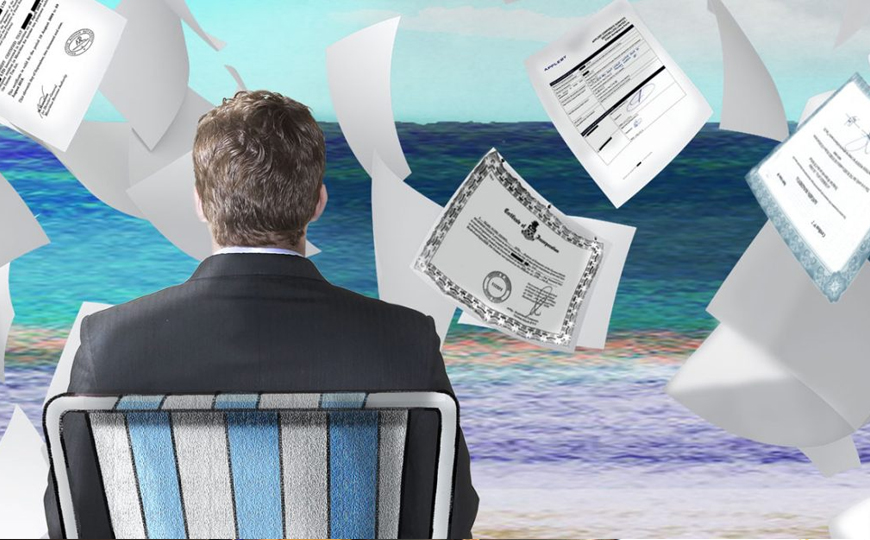Since the revelation, last year, of the so-called “Panama Papers”, this week a trove of 13.4 million records dubbed “The Paradise Papers”, obtained by the German newspaper Die Süddeutsche Zeitung, from an NGO known as the International Consortium of Investigative Journalists, exposes alarming ties between Vladimir Putin’s Russia and Donald Trump’s billionaire commerce secretary Wilbur Ross (our worst enemy in the NAFTA renegotiations) who is now revealed to have received more than 68 million dollars in revenue through a shipping company co-owned by Putin’s son-in-law. The newly revealed records show how deeply the off-shore financial system is entangled with the overlapping worlds of political players, private wealth and corporate giants, including Apple, Nike, Uber and many other global companies that avoid taxes through increasingly imaginative bookkeeping maneuvers. In all, the offshore ties of more than a dozen Trump advisers, cabinet members and major donors to Trump’s election campaign appear in the leaked data. But in addition to that, there are even discrete investments by Queen Elizabeth II (10 million Pound Sterling) in the Cayman Islands, and the documents disclose that entertainers such as Madonna and Bono in the company of three former Canadian Prime Ministers, Queen Noor of Jordania and five members of the Qatari Royal Family are implicated. What about Mexico? Here we find such luminaries as: Ricardo Salinas Pliego and his Codisco Investments in Barbados, Carlos Slim and his Telecom Américas Ltd. in Bermuda, Roberto González, the owner of Grupo Maseca established as Glisco Partners in Barbados. Let’s not overlook Enrique Coppel, Pedro Aspe (Ex-Sec. de Hacienda), Alejandro Gertz Manero (Ex-Sec. de Seguridad Pública) and the long departed Marcial Maciel as well as Joaqín Gamboa Pascoe.
We mentioned above the concept of “tax avoidance” and we need to now distinguish that from the concept of “tax evasion”: Tax avoidance is the very legitimate use of business expense deductions, operation of low-tax off-shore bank accounts or off-shore companies. This practice, then, lessens one’s tax liability. Tax evasion, however, - the illegal failure to pay taxes on income or deliberately and illegally under-reporting income - is universally regarded as a serious crime. So, briefly stated: If the individuals named in the Paradise Papers properly reported their incomes derived from off-shore sources and paid the applicable taxes in their home countries, they have nothing to worry about! If, they did not report or under-reported they are truly in big trouble. It should be remembered that Mexico signed on to the OECD’s Offshore Voluntary Disclosure Initiative in 2009 and has traditionally applied the universal rule that all citizens must report and pay taxes on their entire world-wide income. Now, the question presents itself: If all members of the G20/OECD process have eliminated their banking secret as of October 2011 (while allowing Switzerland and Austria to keep it until January 2016 and January 2017 respectively), is there still a possibility to maintain secret bank accounts anywhere in the world? The answer is YES ! Singapore and Hongkong have categorically refused to eliminate their secrecy laws, even to the point of threatening with the loss of operating licenses, any financial institution revealing the identity of their account holders.




